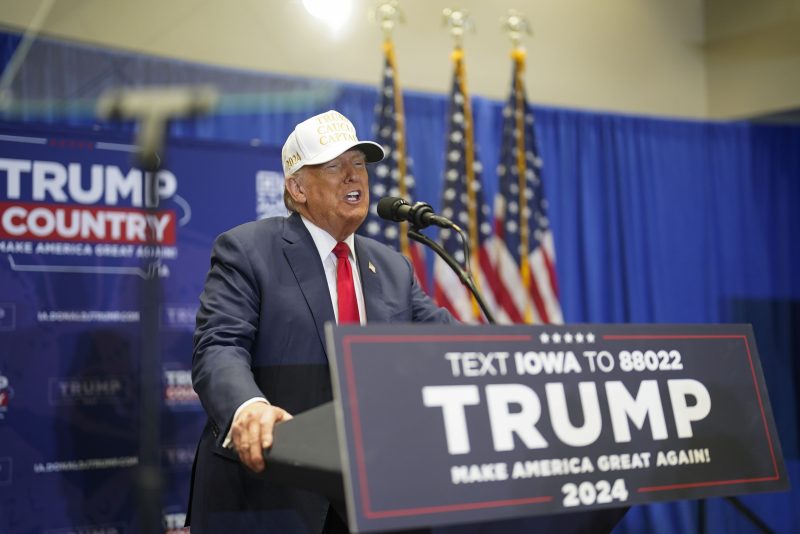The Iowa Republican caucuses convene at 7 p.m. Central time Monday, and it shouldn’t take too long to learn who prevailed in the first nominating contest of the 2024 presidential campaign season.
Iowa Republican voters will gather at local precincts — a school gym, church or other community space — across the state. Once they check in, caucus-goers work through procedural measures (such as electing precinct chairs), listen to speeches from presidential campaign representatives and fill out their ballots with the name of their preferred presidential candidate.
2024 presidential election
End of carousel
Republican voters, gathering in about 1,600 precincts across the state, pick a candidate through a simple vote.
The process is expected to move quickly. Votes are collected, counted and typically announced to the room, with volunteers counting votes and reporting them up the chain to the state Republican Party, which is running the caucuses.
The Iowa Republican Party plans to publicly report caucus results in real time Monday night on the state party website.
While most states host primary elections where voters can cast ballots early or show up during a wide window of time on Election Day, Iowa’s Republican caucus requires voters to go to a precinct site on a specific night in the dead of winter to participate.
The event’s in-person, time-intensive structure can exclude groups of people without the time or physical ability to attend — including people who work evening shifts, students studying out of state, those who can’t find child care and disabled individuals who have difficulty getting out of the house. No early or absentee voting is allowed, except for a tiny number of military service members. Frigid weather could also keep people home this year.
The simple ballot process being used by Iowa Republicans is also unlike the process long used by Democrats during their party’s caucuses in Iowa — when voters at caucus sites shuffle across the room to join groups supporting their preferred candidates.
This year, Democrats won’t join Republicans in voting in January, or in voting by caucus.
In 2020, the process broke down so badly for Democrats that it never produced an undisputed winner.
Joe Biden came in fourth in Iowa. National Democrats have also had growing concerns about Iowa’s lack of demographic diversity, so they ejected it as the first state to hold a nominating contest. This year they will vote for a nominee by mailing in a ballot, and they will announce their results in March.
Amber Phillips and Patrick Marley contributed to this report.

